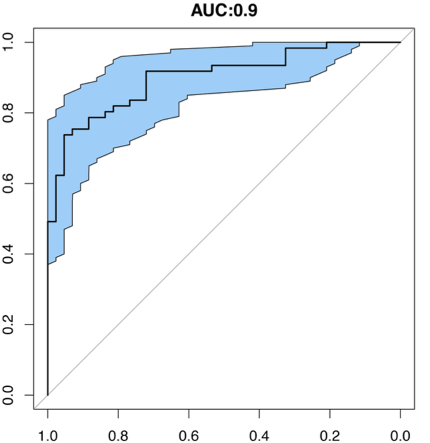Abstract
Background
Diverse large cohorts are necessary for dissecting subtypes of autism, and intellectual disability is one of the most robust endophenotypes for analysis. However, current cognitive assessment methods are not feasible at scale.
Methods
We developed five commonly used machine learning models to predict cognitive impairment (FSIQ<80 and FSIQ<70) and FSIQ scores among 521 children with autism using parent-reported online surveys in SPARK, and evaluated them in an independent set (n=1346) with a missing data rate up to 70%. We assessed accuracy, sensitivity and specificity by comparing predicted cognitive level against clinical IQ data.
Results
The elastic-net model has good performance (AUC=0.876, sensitivity=0.772, specificity=0.803) using 129 predictive features to impute cognitive impairment (FSIQ<80). Top ranked predictive features included parent-reported language and cognitive levels, age at autism diagnosis, and history of services. Prediction of FSIQ<70 and FSIQ scores also showed good prediction performance.
Conclusions
We show cognitive levels can be imputed with high accuracy for children with autism, using commonly collected parent-reported data and standardized surveys. The current model offers a method for large scale autism studies seeking estimates of cognitive ability when standardized psychometric testing is not feasible.
A preprint version is available at medRxiv: http://10.1101/2021.08.25.21262613
